12 Profound Existentialism Quotes That Will Transform Your Understanding of Life
Understanding Existentialism: The Philosophy of Human Existence
Existentialism emerged in the 20th century as a philosophical and cultural movement that radically challenged traditional ways of thinking about human existence. At its heart, existentialism explores what it means to be human in a world that offers no predetermined meaning or purpose. Unlike other philosophical approaches that attempt to construct grand theories about the nature of reality, existentialism focuses on the concrete experience of being an individual human in an often uncertain and absurd world.
The philosophy gained prominence in the aftermath of World Wars I and II, when traditional systems of meaning had been shattered by unprecedented global conflict and human suffering. Thinkers like Jean-Paul Sartre, Albert Camus, and Simone de Beauvoir developed existentialism as a way to grapple with the fundamental questions of human existence in a world that seemed to have lost its moorings.
Key principles of existentialism include:
- Existence Precedes Essence: This fundamental principle suggests that humans first exist and then, through their actions and choices, create who they are. There is no predetermined human nature or divine plan that defines us.
- Radical Freedom: Existentialists believe that humans are fundamentally free to make their own choices and create their own meaning. This freedom isn’t just a political or social condition but a fundamental aspect of human existence.
- Responsibility: With this radical freedom comes complete responsibility for our choices and actions. We cannot blame our circumstances, society, or human nature for our decisions.
- Authenticity: Living authentically means acknowledging our freedom and responsibility, making conscious choices rather than following prescribed paths, and being true to ourselves rather than conforming to external expectations.
- Anxiety and Despair: These are natural responses to recognizing our complete freedom and responsibility. The anxiety we feel in the face of important decisions is a sign of our awareness of our freedom to choose.
Let’s explore twelve profound existential quotes that illuminate these themes and offer deep insights into the human condition. Each quote represents a different facet of existential thought and provides practical wisdom for navigating life’s challenges.
1.”I postpone death by living, by suffering, by error, by risking, by giving, by losing” – Anais Nin
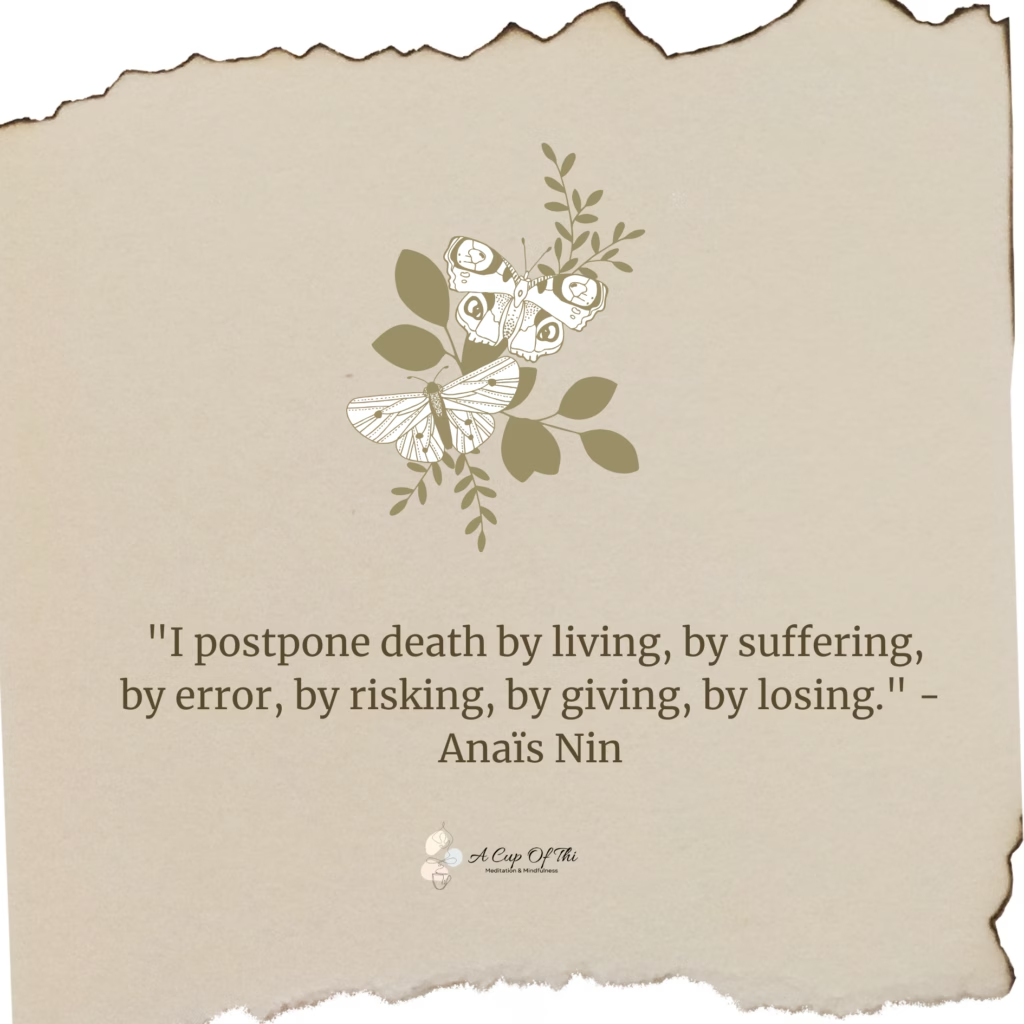
This powerful statement by Anaïs Nin encapsulates the existential approach to life and death. Rather than seeing death as something to be feared or avoided, Nin suggests that we “postpone” it through full engagement with life in all its aspects. The quote is particularly striking because it doesn’t just celebrate the positive aspects of life but embraces its difficulties and losses as equally valuable parts of existence.
By including “suffering” and “error” alongside “giving” and “risking,” Nin acknowledges that a fully lived life includes both pain and joy. This aligns with the existential view that authenticity requires embracing all aspects of human experience rather than trying to avoid difficulty or seeking only pleasure.
The verb “postpone” is particularly significant – it acknowledges death’s inevitability while suggesting that active engagement with life is our best response to mortality. This reflects the existential emphasis on choosing how to live in the face of our finite existence.
2. “Where your fear is, there your task is.” – C.G Jung
Jung’s insight, though coming from analytical psychology, perfectly aligns with existential thinking about fear and personal growth. This quote suggests that our fears aren’t merely obstacles to be avoided but signposts pointing toward important work we need to do.
The existential significance of this quote lies in its suggestion that confronting our fears is essential to authentic living. Rather than avoiding what frightens us, we should recognize fear as an indicator of where we need to grow and engage. This aligns with existentialism’s emphasis on facing life’s challenges directly rather than seeking comfort in denial or avoidance.
The quote also implies personal responsibility – the “task” is yours, and no one else can complete it for you. This resonates with existentialism’s emphasis on individual responsibility and the necessity of making conscious choices about how to face life’s challenges.
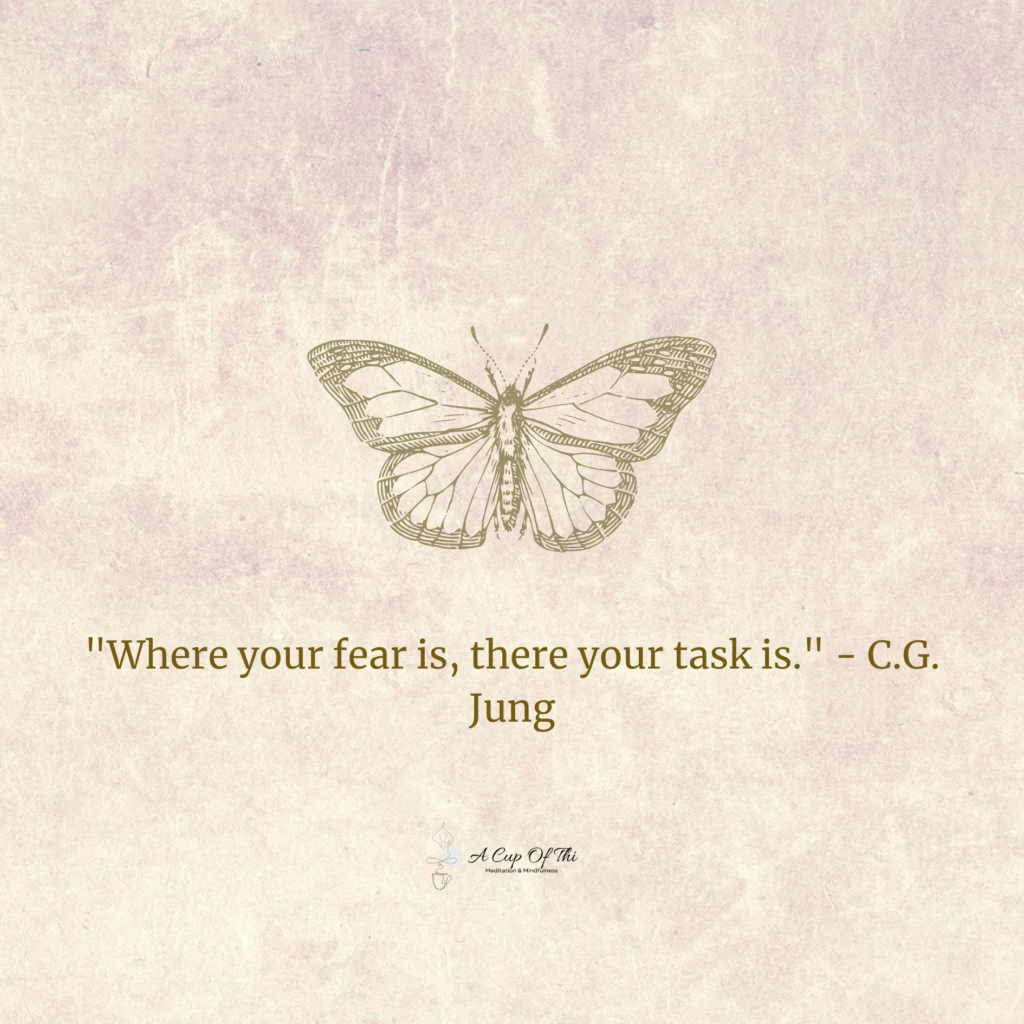
3. “The greatest weapon against stress is our ability to choose one thought over another” – William James
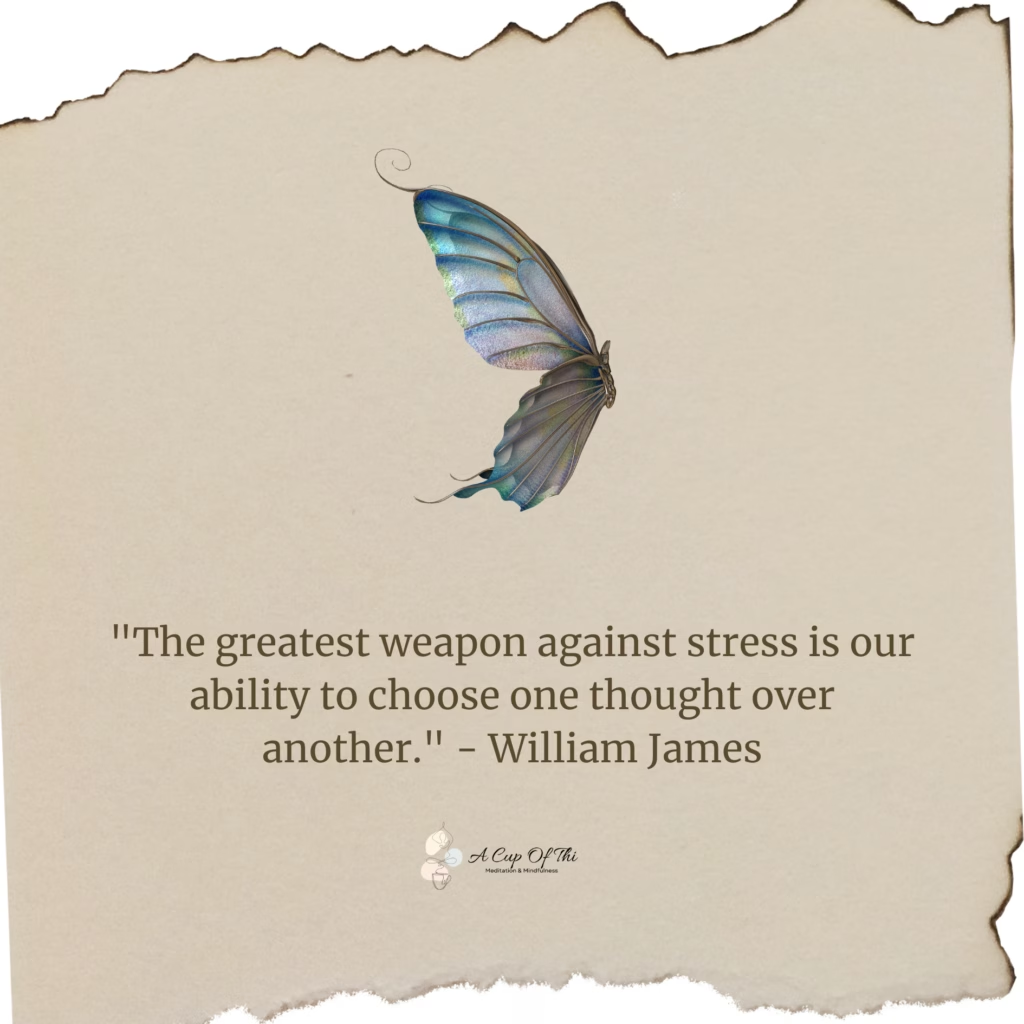
While James predated existentialism as a movement, this quote captures essential existential themes about choice and consciousness. It emphasizes our fundamental freedom to choose our response to circumstances, even at the level of our thoughts.
The existential significance lies in the recognition of choice as a “weapon” against the difficulties of life. This aligns with existentialism’s emphasis on human freedom and responsibility – we may not control external circumstances, but we always have the freedom to choose our response to them.
The quote also suggests a practical approach to existential anxiety. Rather than being overwhelmed by the multitude of possibilities that create stress, we can exercise our freedom by consciously choosing our thoughts and responses.
4. “No amount of anxiety makes any difference to anything that is going to happen.” – Alan Watts
This observation by Watts speaks to the existential understanding of anxiety and its relationship to future possibilities. It highlights the futility of anxiety while simultaneously pointing to the existential task of accepting uncertainty.
The quote challenges us to recognize that anxiety about the future doesn’t change future outcomes – it only affects our present experience. This aligns with existentialism’s emphasis on living authentically in the present moment rather than being paralyzed by concern about future possibilities.
From an existential perspective, this quote doesn’t suggest that we should never feel anxiety (which existentialists see as a natural response to our freedom and uncertainty) but rather that we shouldn’t let anxiety control our lives or prevent us from making choices and taking action.
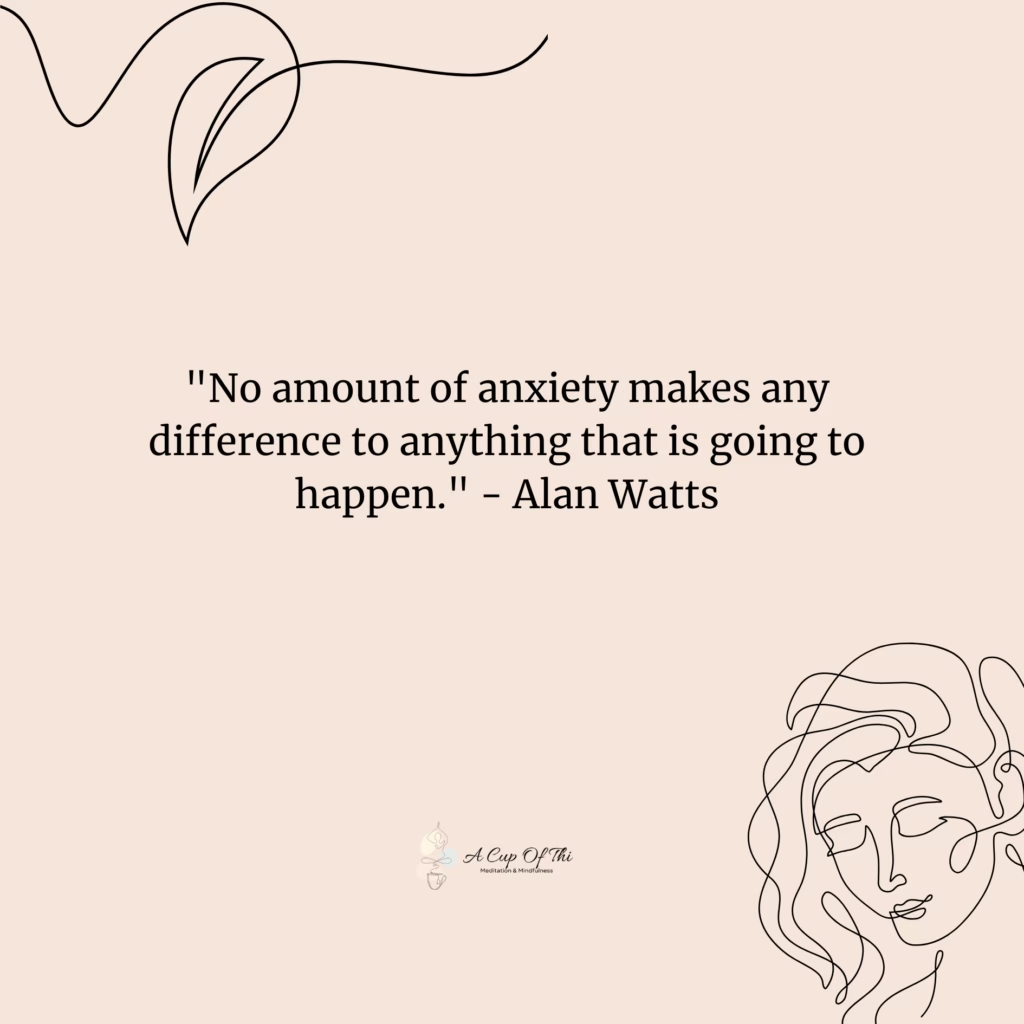
5. “Intellectualism is a common cover-up for fear of direct experience.” – Alan Watts
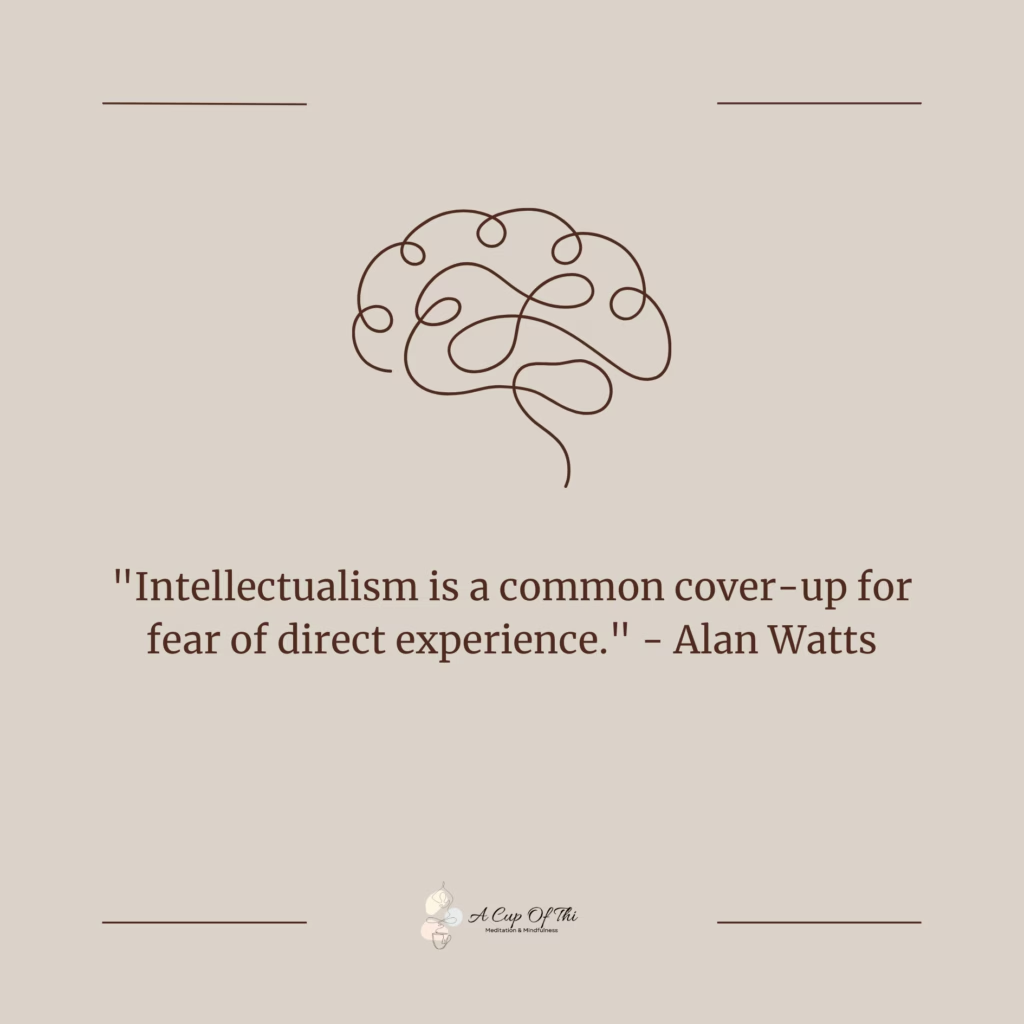
This insightful observation challenges our tendency to retreat into abstract thinking rather than engaging directly with life. It speaks to the existential emphasis on authentic experience over theoretical understanding.
The quote suggests that excessive intellectualization can be a form of inauthenticity – a way of avoiding real engagement with life’s challenges and experiences. This aligns with existentialism’s critique of abstract philosophical systems that attempt to explain everything while missing the concrete reality of human existence.
From an existential perspective, the value of this quote lies in its call to engage directly with life rather than merely thinking about it. It suggests that true understanding comes through lived experience rather than abstract contemplation.
6. ” Crisis doesn’t create character. It reveals it.” – James Lane Allen
This quote resonates deeply with existential themes about authenticity and how we respond to life’s challenges. It suggests that our true nature emerges in moments of difficulty, revealing the choices we’ve made and the values we’ve developed.
The existential significance lies in its implication about personal responsibility and the ongoing process of self-creation. While crisis may reveal character, that character has been shaped by all our previous choices and actions – reflecting existentialism’s emphasis on how we create ourselves through our choices over time.
The quote also speaks to existential authenticity – in moments of crisis, our true values and choices become apparent, stripped of pretense and social masks.
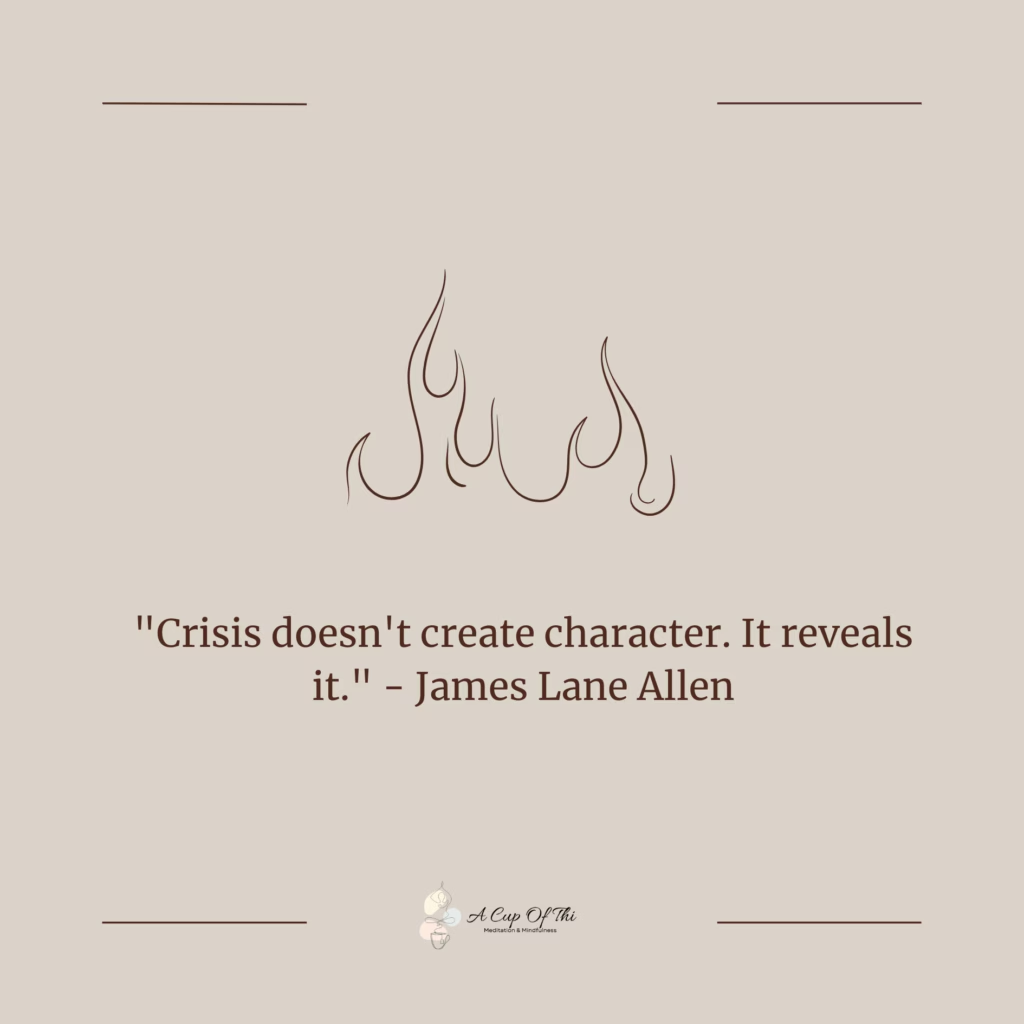
7. “If you kill a cockroach, you are a hero. If you kill a butterfly, you are bad. Morality has aesthetic standards.” – Anonymous
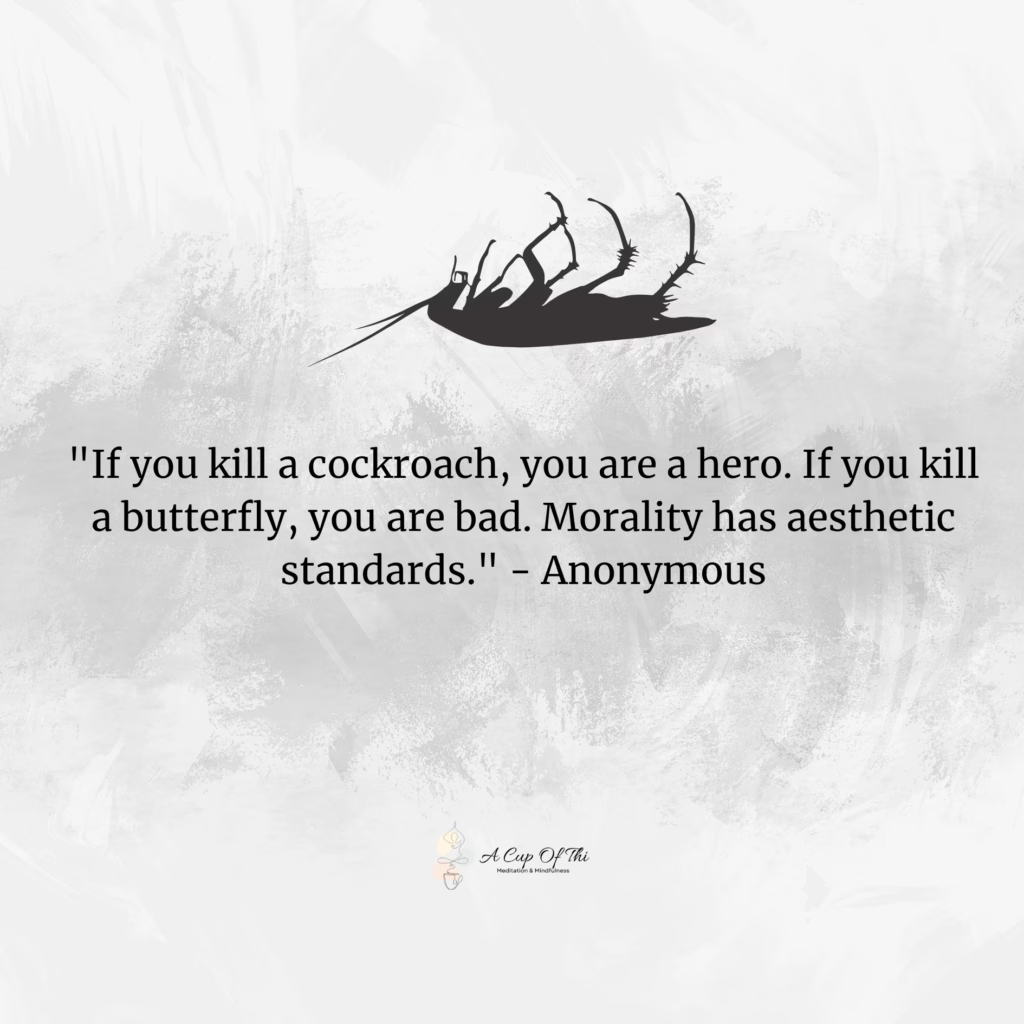
This provocative statement highlights the subjective and often arbitrary nature of moral judgments, a key concern in existential ethics. It challenges us to think critically about the values we accept and to take responsibility for creating our own ethical framework.
From an existential perspective, this quote reveals how moral judgments often rest on subjective preferences rather than absolute truths. This aligns with existentialism’s rejection of universal moral systems and its emphasis on personal responsibility for creating values.
The quote’s comparison between cockroaches and butterflies effectively illustrates how our moral judgments can be influenced by superficial factors, challenging us to examine our ethical choices more deeply and consciously.
8. Sometimes, carrying on, just carrying on, is the superhuman achievement.” – Albert Camus
This quote from Camus captures a central existential insight about the courage required to persist in the face of life’s apparent meaninglessness. It acknowledges that sometimes the most heroic act is simply to continue living and engaging with life despite its difficulties and absurdities.
The existential significance lies in its recognition of the everyday heroism of human existence. Rather than defining heroism through grand achievements, it suggests that the true challenge is often simply continuing to engage with life despite its apparent absurdity.
This perspective aligns with Camus’s concept of the absurd hero, who continues to push forward despite recognizing life’s fundamental lack of inherent meaning.
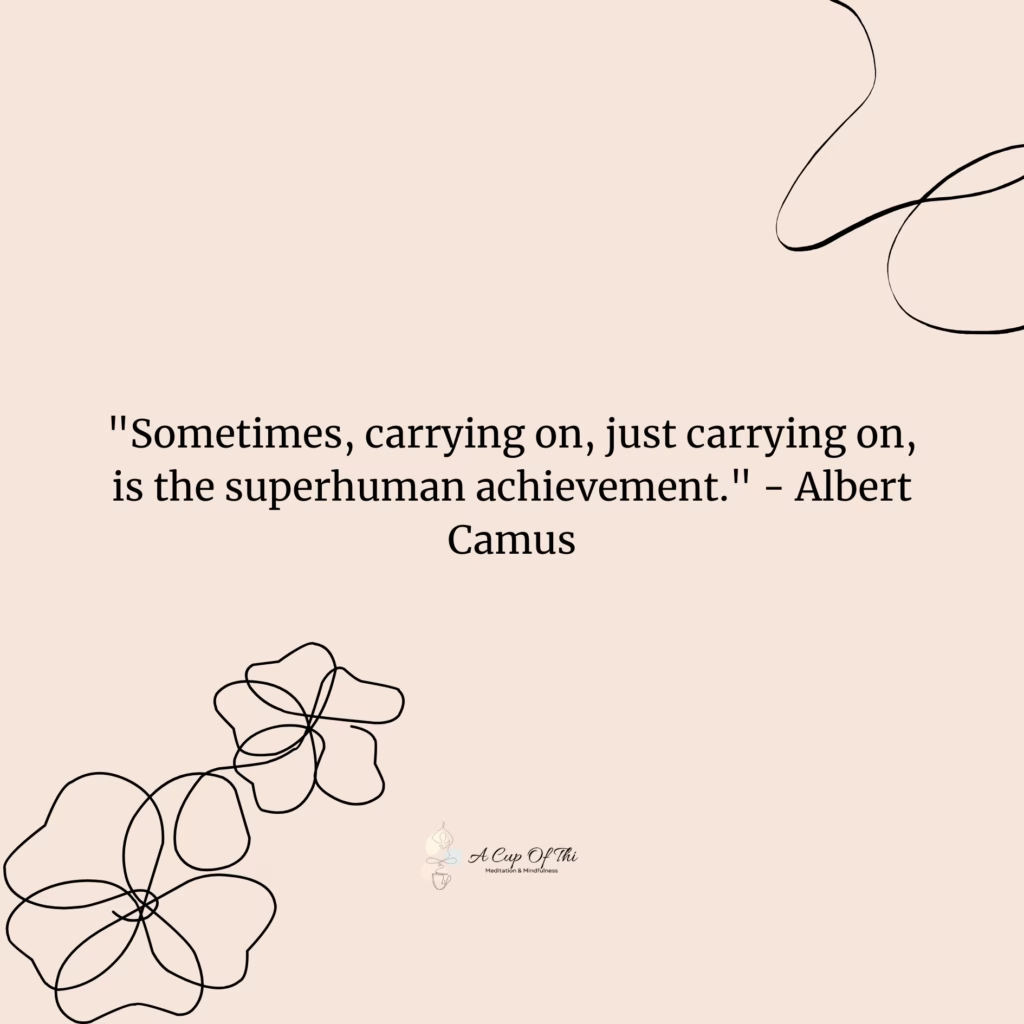
9. “Care about what other people think and you will always be their prisoner.” – Lao Tzu
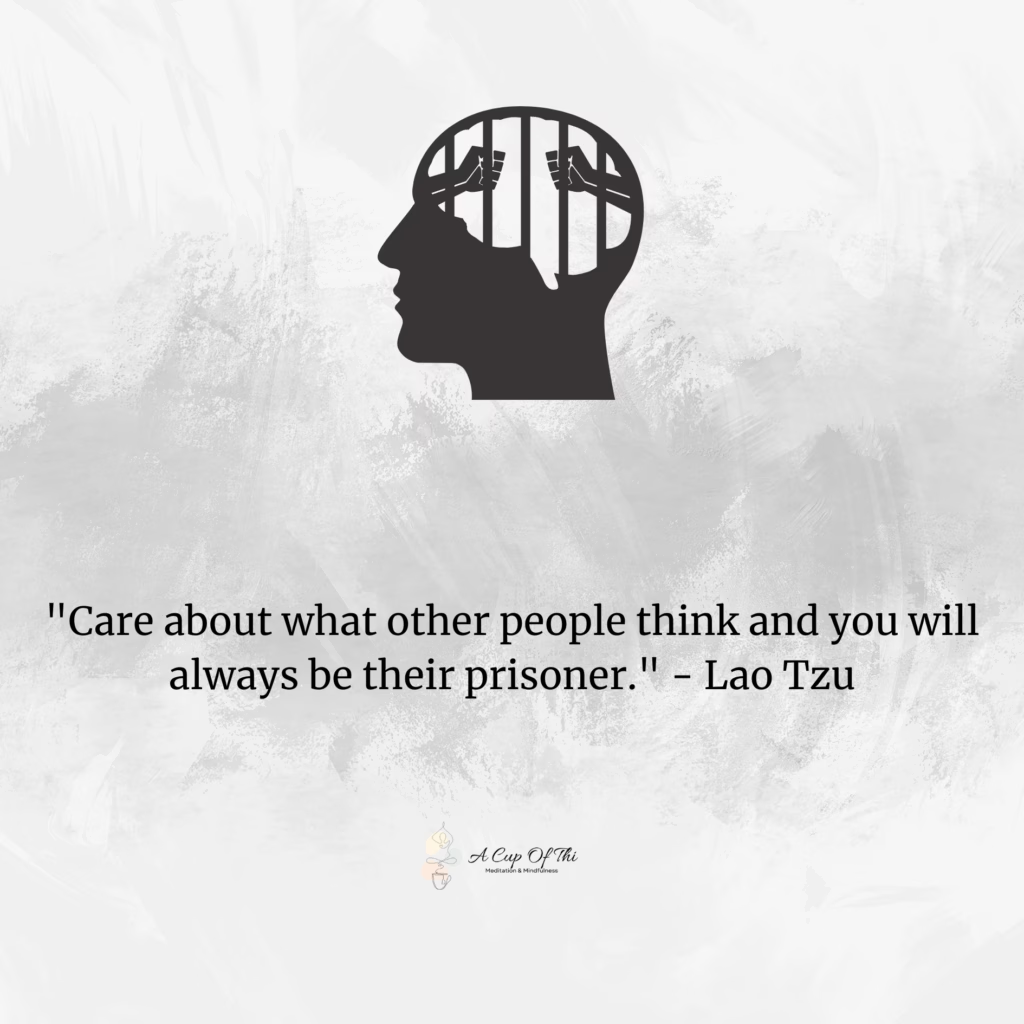
Though ancient in origin, this wisdom perfectly aligns with existential emphasis on authentic living and freedom from social conformity. It warns against allowing external opinions to dictate our choices, encouraging instead the pursuit of personal truth.
The existential significance lies in its call for authenticity and resistance to what Heidegger called “the they-self” – the tendency to live according to others’ expectations rather than our own authentic choices.
The metaphor of imprisonment is particularly relevant to existential themes of freedom and responsibility – suggesting that caring too much about others’ opinions creates a self-imposed prison that limits our freedom to live authentically.
10. “Life begins on the other side of despair.” – Jean- Paul Satre
This profound statement from Sartre suggests that authentic living becomes possible only after we’ve confronted and moved through existential despair. It’s by facing the apparent meaninglessness of existence that we can begin to create genuine meaning.
The quote speaks to the existential journey through despair to authenticity. Rather than avoiding or denying our despair, Sartre suggests we must fully experience it to move beyond it to authentic living.
This perspective aligns with existentialism’s emphasis on facing difficult truths about existence rather than seeking comfort in illusions or distractions.
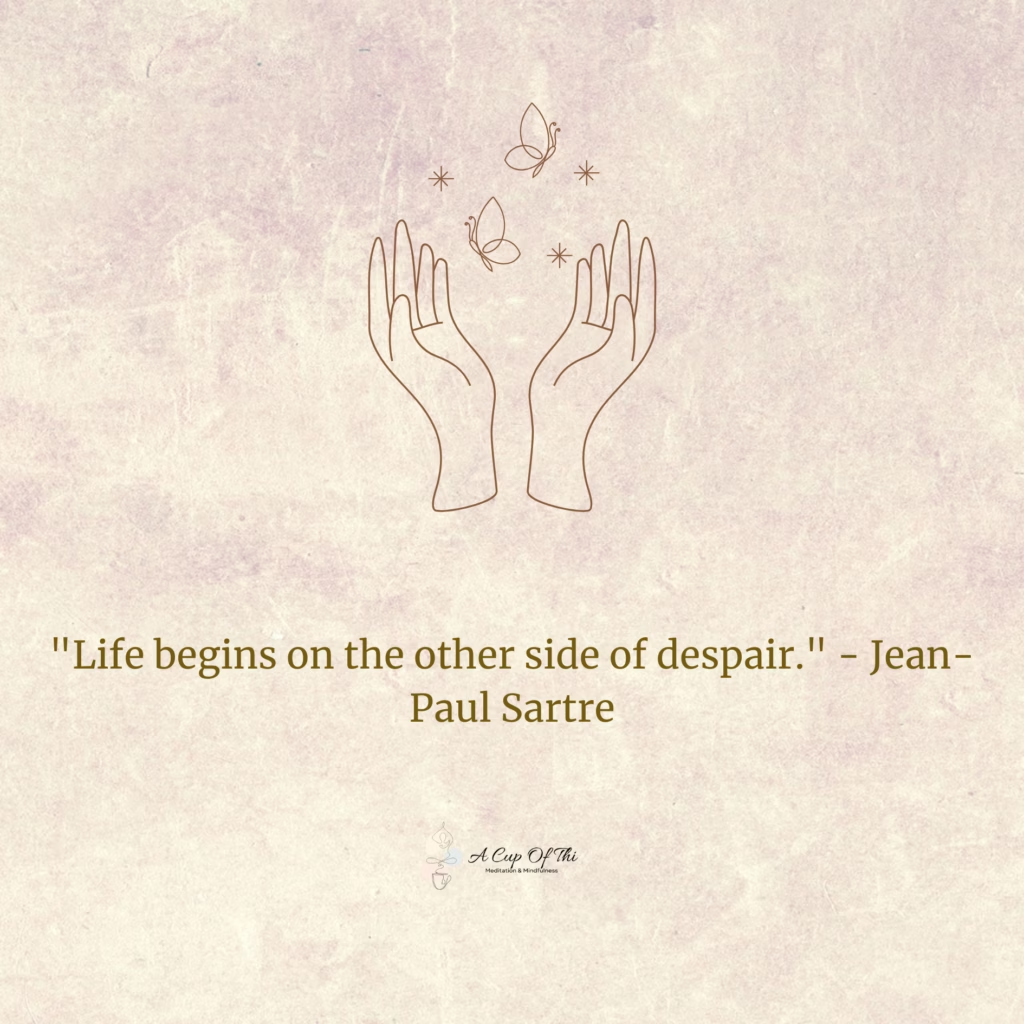
11. “Every existing thing is born without reason, prolongs itself out of weakness, and dies by chance.” – Jean-Paul Satre
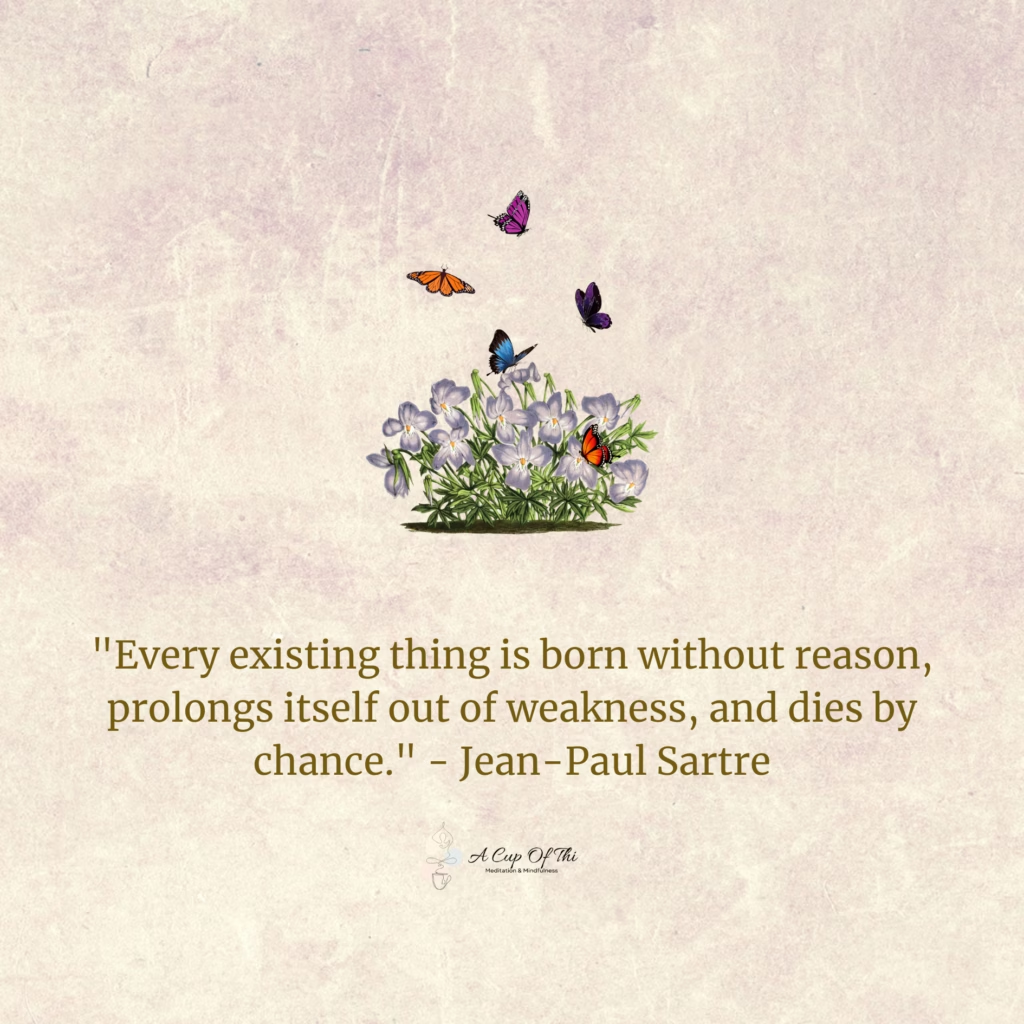
This stark observation confronts us with the apparent absurdity of existence. It challenges comfortable assumptions about purpose and meaning in life, forcing us to confront the randomness and contingency of existence.
The existential significance lies in its complete rejection of predetermined meaning or purpose. However, rather than leading to despair, this recognition can free us to create our own meaning and purpose.
The quote’s seemingly harsh perspective actually opens the door to existential freedom – if nothing has inherent meaning, we are free to create meaning through our choices and actions.
12. The only way to deal with an unfree world is to become so absolutely free that your very existence is an act of rebellion” – Albert Camus
This final quote serves as a powerful call to action, suggesting that personal freedom and authenticity can be revolutionary acts in themselves. It speaks to the existential emphasis on individual freedom in the face of social, political, and cultural constraints.
The existential significance lies in its suggestion that true freedom is an internal state that can exist even in external conditions of constraint. This aligns with existentialism’s emphasis on radical personal freedom and responsibility.
The quote also suggests that authentic living itself can be a form of resistance to social forces that attempt to limit human freedom and impose predetermined meanings and values.
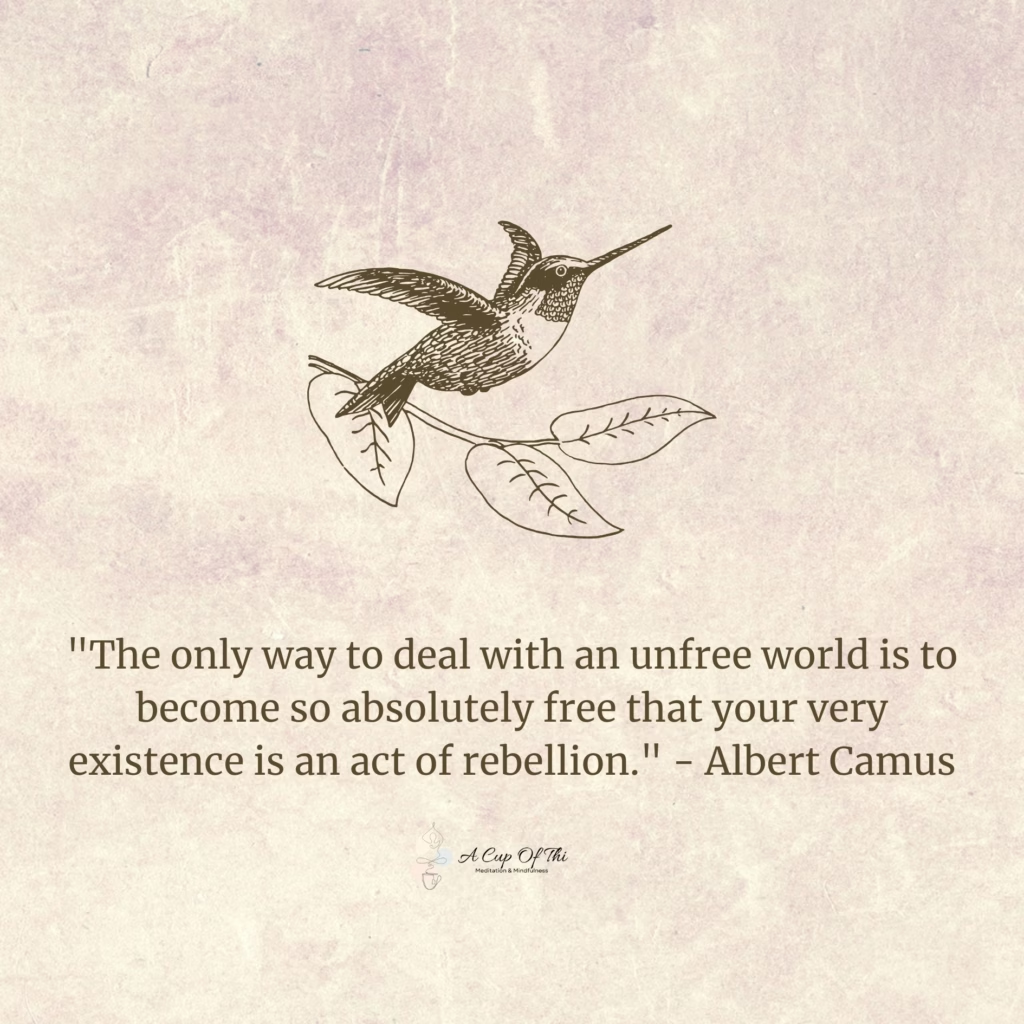
Conclusion
These twelve existential quotes offer more than philosophical insights – they provide practical wisdom for navigating life’s challenges and opportunities. They remind us that while existence may not come with predetermined meaning, we have the freedom and responsibility to create meaning through our choices and actions.
The existential perspective encourages us to embrace our freedom, face our fears, accept life’s uncertainties, and live authentically. It suggests that true fulfillment comes not from avoiding life’s difficulties but from engaging with them meaningfully and purposefully.
As we reflect on these quotes, we’re invited to examine our own lives more deeply and to take responsibility for creating the meaning we seek. The existential journey is not about finding absolute answers but about living the questions themselves with courage, authenticity, and purpose.



